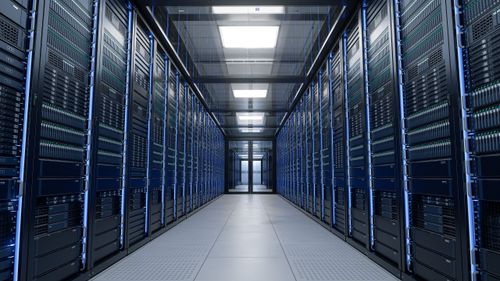What Is a GPU Server? A Comprehensive Guide for Beginners

Introduction to GPU Servers
With the rise of AI, machine learning (ML), and high-performance computing, the demand for GPU servers has surged. These powerful computing systems provide significant processing power for applications requiring parallel computations. This guide explores GPU servers, their benefits, and how to choose the right one to enhance your computational capabilities.
What Is a GPU Server?
A GPU server is a specialized computing system designed to process large volumes of data simultaneously. Unlike CPUs, which perform sequential tasks, GPUs excel at parallel processing, making them ideal for AI, ML, rendering, and deep learning applications. By leveraging GPU servers, businesses and researchers can significantly improve computational efficiency and processing speed.
Importance of GPU Servers for High-Level Tasks
GPU servers are critical for AI training, scientific simulations, and large-scale data processing. They offer faster computations compared to traditional CPU servers. With cloud-based GPU servers, even small businesses and startups can access high-end computing resources, making AI and ML more widely available and scalable.
Key Characteristics of GPU Servers
Compatibility with AI Frameworks
GPU servers are optimized for deep learning and AI model training, offering compatibility with frameworks such as TensorFlow, PyTorch, and CUDA. These frameworks leverage GPU acceleration to reduce training times and enhance model accuracy and efficiency.
Benefits for High-Performance Computing
Beyond AI, GPU servers excel in scientific computing, rendering, and large-scale simulations. Their ability to handle parallel workloads makes them indispensable in fields like medicine, finance, and physics research, where massive datasets require quick analysis.
Advantages of GPU Hosting
Scalability and Flexibility
GPU hosting provides businesses with scalable computing power. Whether a startup or enterprise, GPU hosting solutions allow companies to expand their resources on demand. Cloud-based GPU hosting offers remote access, enabling global collaboration and resource sharing.
Budget-Friendliness and Worldwide Access
GPU hosting eliminates the need for expensive hardware investments while offering on-demand access to powerful GPUs. Companies can select hosting plans based on budget and usage requirements, ensuring cost-effective computing solutions.
Exploring Dedicated GPU Server Hosting
Full Access to Hardware Assets
Dedicated GPU servers grant businesses exclusive access to GPU resources, eliminating shared performance bottlenecks. This ensures uninterrupted computing power for high-demand applications like AI model training and real-time data processing.
Speed and Reliability Without Resource Sharing
Since dedicated GPU servers are not shared with other users, they deliver consistent performance and low-latency computing. This makes them ideal for mission-critical applications that require stable and uninterrupted performance.
Ideal for Advanced AI and ML Tasks
Dedicated GPU hosting is the preferred choice for AI research labs, deep learning projects, and data-intensive workloads. With full control over hardware, businesses can optimize configurations to maximize performance and efficiency.
Understanding GPU VPS Hosting
Ease of Setup and Management
GPU VPS (Virtual Private Server) hosting is a cost-effective alternative for businesses that need GPU computing without managing dedicated hardware. GPU VPS allows users to customize environments, making it an excellent option for development and small-scale AI projects.
Cost-Effectiveness for Small and Medium Projects
GPU VPS hosting offers a balance of affordability and performance, making it suitable for small businesses, research institutions, and freelance AI developers who need GPU power without large infrastructure costs.
Best Uses for GPU Servers
AI & ML Applications
GPU servers accelerate machine learning models and AI training, significantly reducing the time required for data processing and analysis. This is essential for autonomous systems, natural language processing, and image recognition.
Advanced Graphic Rendering
Industries such as gaming, film production, and 3D design rely on GPU servers for real-time rendering, visual effects, and high-resolution simulations. The increased processing power enables faster frame rendering and improved graphic fidelity.
Scientific Research Opportunities
GPU servers play a vital role in weather modeling, genomic research, and physics simulations, enabling researchers to process massive datasets efficiently and accelerate discovery in various scientific fields.
The Benefits of a Dedicated Server with GPU
High-Performance Computing and Increased Security
Dedicated GPU servers provide maximum processing power and enhanced security. Unlike shared environments, dedicated hosting protects sensitive data from potential breaches and ensures stable performance.
Reliability and Customizability
Dedicated GPU servers allow businesses to customize hardware and software configurations, optimizing them for specific workloads. This ensures reliable, high-speed computing tailored to unique business needs.
Steps to Setting Up a GPU Server
Selecting an Appropriate Hosting Plan
Choosing the right hosting plan depends on computing needs, budget, and project scalability. Providers offer various configurations, from shared GPU resources to high-end dedicated GPU servers.
Installing GPU Drivers and Applications
After selecting a hosting plan, businesses must install necessary GPU drivers (CUDA, OpenCL) and AI frameworks to maximize computing performance. Providers may offer pre-configured GPU environments for quick setup.
Choosing the Right Operating System
Selecting an OS compatible with AI and ML applications is essential. Popular options include Ubuntu, CentOS, and Windows Server, each supporting GPU acceleration and deep learning libraries.
Security and Maintenance of GPU Servers
Best Practices for Security Measures
Maintaining a secure GPU server involves:
- Implementing strong access controls
- Using firewalls and intrusion detection systems
- Encrypting sensitive data to prevent unauthorized access
Importance of Regular Updates and Monitoring
Regular software updates and real-time server monitoring help prevent system vulnerabilities. Many GPU hosting providers offer automated patching and proactive threat detection for enhanced security.
Conclusion
GPU servers provide unparalleled computational power for businesses and researchers engaged in AI, ML, rendering, and scientific computing. Whether using cloud-based, dedicated, or VPS GPU hosting, the right solution depends on scalability, security, and budget considerations. By leveraging GPU servers, businesses can accelerate innovation, enhance efficiency, and stay ahead in a data-driven world.



